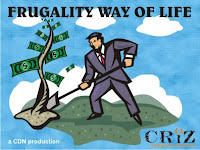Changing American Economics: The New Wave of Frugality Sweeping America
| August 12, 2008 | Posted by Roshawn Watson under Uncategorized |
Comments off
|
 By: Roshawn Watson
By: Roshawn Watson
Yesterday, we discussed why European shoppers are taking over New York. That begs the question though: where have all of the American New York shoppers gone?
Americans are becoming increasingly more inclined to spend less as we distance ourselves from stores such as Neiman Marcus, Jimmy Choo, and Best Buy. Although not everyone has changed, several indicators suggest that frugality is becoming an increasing trend.
For example, large vehicle sales have declined 43% whereas Vespa sales increased by 146% over the course of last year. Note that sales for small vehicles increased by 10% over the course of last year. People are avoiding expensive coffee shops like a plague, which prompted Starbucks to recently close 600 stores. Also, according to the NPD group, more and more people are eating meals prepared from home.
Additionally, there is a whole simplicity movement evolving. For example, some are now observing Buy Nothing Day. Books are beginning to celebrate the process of buying nothing for a year. Even some youth are developing an increased interest in saving money on clothes through second-hand shops. Victoria Becham and Heidi Klum received positive PR for taking their kids to Target to shop.
Your Downsizing and Spending Affect Your Cash Flow Tremendously
If you haven’t personally enjoyed the benefits of downsizings, you may be skeptical. Consider that the American savings rate has been hovering around zero (it was negative at one point) for the last few years. Additionally, consider that the household debt-to-income ratio has reached an all-time high, topping 19%. The average household owes about $9,900 on credit cards at an annual rate of 15%, costing about $1,500 a year in interest. The average car loan is $479 per month according to Edmunds.com and the average student loan payment is $182 monthly. In short, our past spending habits suggest that immediate (but temporal) indulgences are more important that our cash flow, long-term financial planning, and our families financial health.
Perhaps, one of the biggest fallacies is that without debt, I will have to live beneath my means. What countless people fail to realize is that it is because of their debt that they are living far beneath their means in the first place. Think about what percentage of your income you spend paying back debt (making others rich along the way). For most people it is at least 45%. Thus, you are forced to live only on 55% of your income. Thus, someone making the same income as you but without debt has 45% more money to invest, use for entertainment, and give towards charitable works.
I suppose it was similar revelations that caused Cindee Mazzanti to downsize. Living in upstate New York, she realized that her expenses were eating up her salary. She changed her lifestyle dramatically. She sold her home, using the equity to pay off her debts. She then purchased a smaller home without a mortgage. She then traded in her Ford Freestyle SUV for a more fuel-efficient Ford Focus. Altogether, her changes decreased her monthly expenses a whopping $4400 (from $5600 to $1200). Now she feels so liberated. Believe me, with an extra $53,000 per year, you would likely feel liberated too.
An Admonishment
Whether you are looking for some extra cash flow or freedom from bondage of debt, small changes make tremendous differences over the long-term. Personal finance guru, David Bach, popularized the term “the latte factor”. It proposes that if most people would just spend the daily costs of a latte on their retirement over the long term, they would generate tremendous wealth. Apparently, the message has sunken in, at least for some American consumers.
Lastly, if you like this post, please click here to get my Brand New eBook FREE and Propel it, Stumble it, and tag it on Delicious.
The Cheap America: Why Europeans Are Taking New York
Stupid, Gas-Guzzling SUVs
Free Yourself From Babylon
The Reason You are Living Beneath Your Means
Copyright 2012, Roshawn Watson, Pharm.D., Ph.D. All Rights Reserved.







Recent Comments